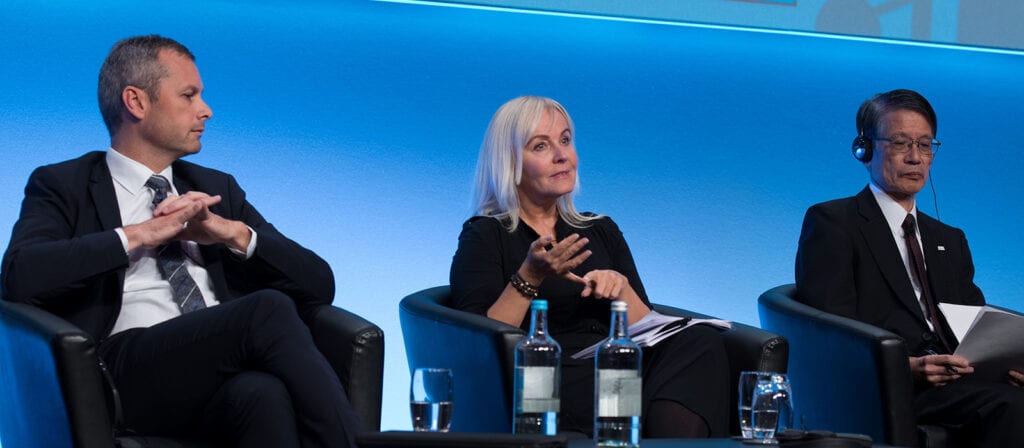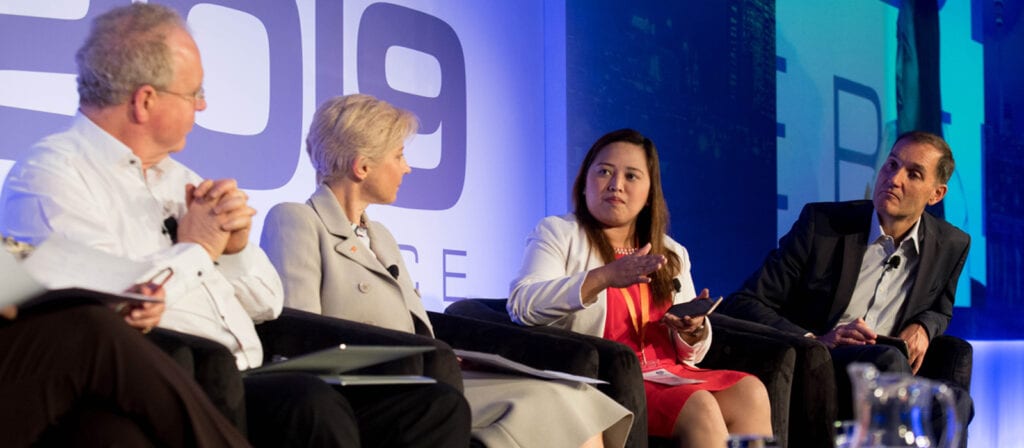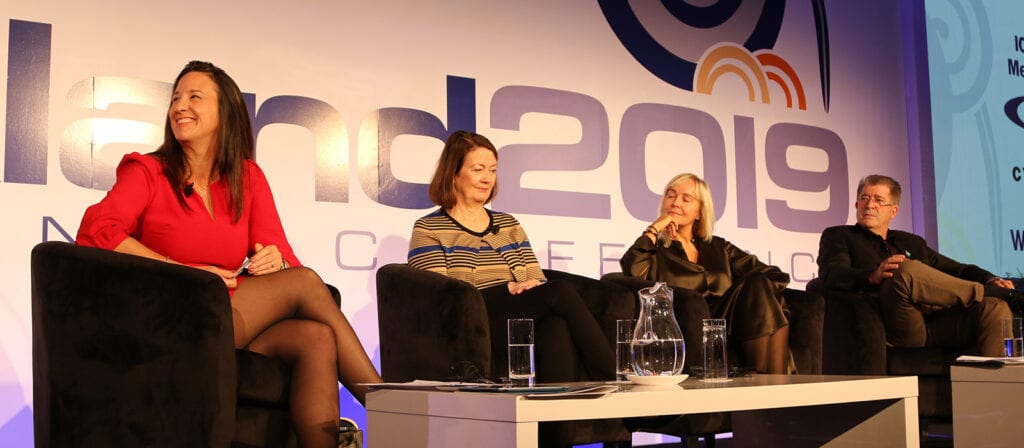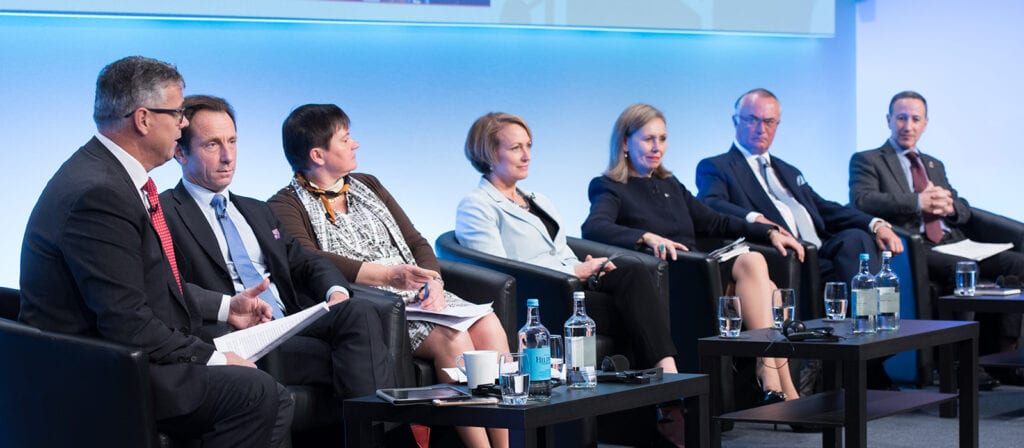At Equidad Seguros (Colombia), it is always “people first” as the company is driven by strong cooperative and socialist values. Throughout Colombia, the cooperative movement creates much needed employment in the rural sector, therefore Equidad works closely with the Government and thus receives immense support for this model. Cooperatives can help mitigate the risk of poverty – an important point to communicate which is often forgotten.
Understanding the need for insurance is low in the country and the face-to-face discussions are key for this education piece. They have multiple channels to satisfy various preferences and also forge partnerships with non-insurers, such as Uber and PayPal, to give clients a seamless service. Equidad has many insurance agents and third-party partners and is now slowly catching up with technology used in the banking sector. It believes that it is vital to cooperate with other cooperatives – a key cooperative principle. The drawback of the model is one of limited access to capital which means there is less spend on technology.
As a values-driven organisation, Equidad has a foundation and scholarship programme for the poorer segments of society. Environmental issues are also important to their customers. The company has planted more than 2000 trees – trying to bring more oxygen to the area and to mitigate the impact of recent de-forestation. To take this to the next level, they are considering going paperless.
La Equidad has recently implemented major structural changes in its Board, and changed distribution channels and claims processes, all driven by market changes. The Equidad Football Team encourages young people to play football and work towards healthy goals. Its focus on values helps young people succeed and 20,000 children have now been trained via its football academy which also promotes international exchanges.
Relationships are key as FMG (New Zealand) do not distribute via intermediaries – its model is a direct one. Innovation is client-driven rather than being driven from inside the business. It is currently working towards increasing the frequency of interactions to help clients identify and mitigate risk. Channels must be blended to include visits, telephone responses and digital channels. Using digital methods helps free up the time that advisers spend with their clients and also improves its profiling and segmenting of its client base.
Brand awareness is extremely high now after a recent program to promote mutuality. It is not the word mutuality that is important, but the action that is driven by those values. How you respond during moments of truth, for example, following an earthquake. People remember and stay loyal if you treat them well. Despite recent increases in prices across the industry, FMG is enjoying increased client retention. However, it does not always communicate the good stuff, such as their outstanding claims record.
Blending new ideas with a more traditional culture is a challenge. FMG have needed to bring in specialised new talent, but also look to re-train existing staff too whenever possible.
In Sweden, mobile phones are important to people leading to Länsförsäkringar creating an app for customers to use. But, it found that their customers also need the personal touch. The agricultural market prefers to talk to an adviser face-to-face when experiencing major life events. Big data helps the company to understand more about the risks affecting its members and helps it mitigate the risk, and therefore reducing claims. This is a win-win situation
“Mutuality can save the world”, but first we must build and retain the trust of our customers. In Sweden, mental illness is an issue, particularly for women over 40. As a member of LF, it is possible to access a psychologist as part of their policy. These value-added services are important and need to be segmented.
LF currently holds 30% of the non-life market. Swedish people are aware of the LF brand but do not know that it is a mutual. LF is known for its values which helps attract people to work with or for the business. LF invests heavily in Green Bonds and promotes this as an important demonstration of being a responsible business.
Royal London (UK) is moving away from paper-based systems and is now capturing data digitally. Big data, in relation to underwriting, is the biggest opportunity and it is important to keep up with the pace of change in this area.
Competing for talent is a big issue. Royal London has been able to recruit very successfully by offering an alternative to working in the City which has proven to be an advantage. The company returns a huge chunk of profits to members. Pension customers receive rebates and that demonstrates a tangible difference between Royal London and other pension providers
Five years ago, Royal London operated across five different brands and they now have just one. Name recognition is now extremely important, and this required a shift in the way Royal London had traditionally invested in branding. Now the budget is much larger and the mutual sponsors cricket and advertises on TV and in other media.
Securian Financial (USA) has focused recently on customer experience and changing expectations. Tied advisers are demanding better technology so that they can spend more time talking to customers and less time on administration. Leveraging big data is, however, extremely difficult to operationalise. Marketing analysis and actuarial analytics are its two main focus areas. On the marketing side, data assists with identifying distribution intermediaries who are more likely to sell their products.
Technology and marketing are the two key areas that Securian is focused on. It has recently brought those skills into the business through new talent hires. In the USA, people do not understand mutuality, but when translated into key propositions – service, pricing and policy – it then has value. Mutuality does help to attract and retain talent therefore brand-building for talent attracting becomes a key necessity. Fintech and insurtech offer opportunities for mutuals like Securian to collaborate across the globe.
Session panellists:
- Carlos Villa, Executive President, La Equidad Seguros (Colombia)
- Chris Black, Chief Executive, FMG (New Zealand)
- Ann Sommer, CEO, Länsförsäkringar Sak (Sweden)
- Tim Harris, Group Finance Director, Royal London (UK)
- Chris Hilger, President and CEO, Securian Financial (USA)
- Kia Javanmardian, Partner, McKinsey & Co (USA) moderator





